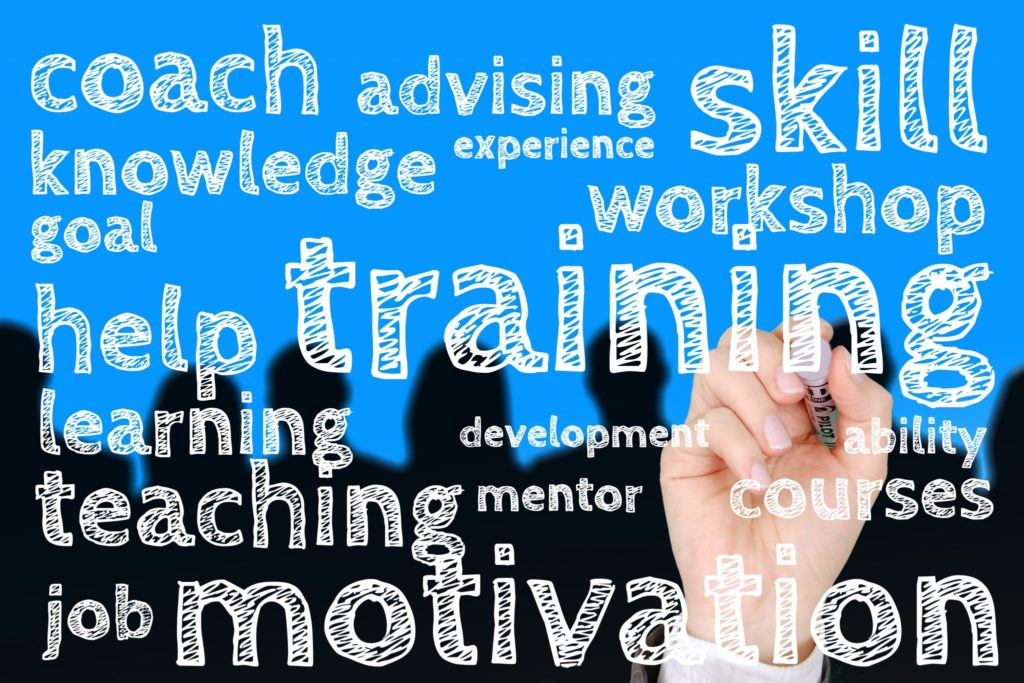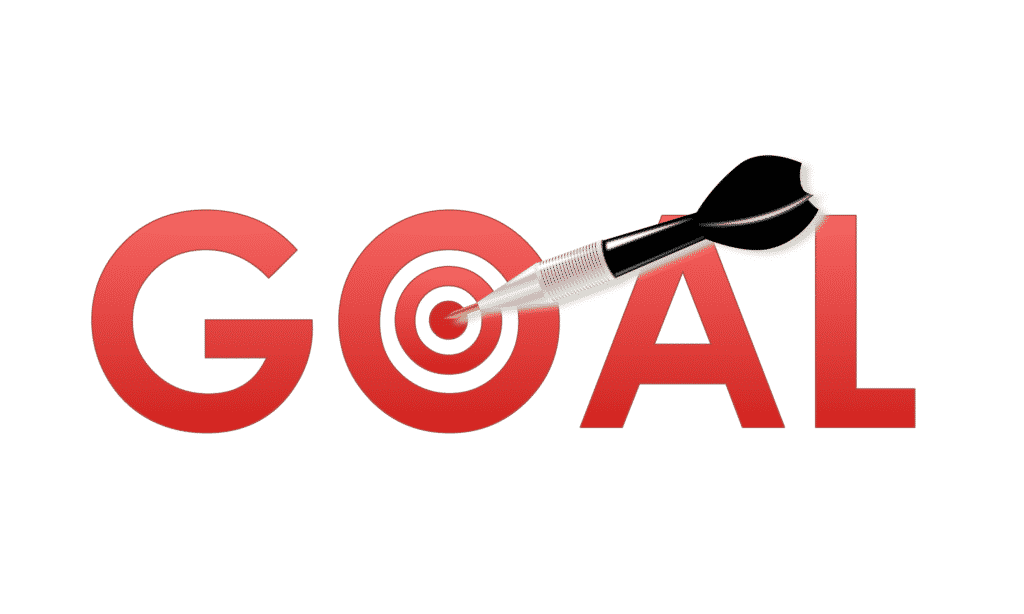The level of competition in the workplace has never been higher. Employees that are skilled and productive are in high demand in most businesses. A corporation requires the finest workforce to fulfil its objectives.
Managers often fail to offer enough training to their personnel. Employees may be unable to work properly due to a lack of sufficient instruction and feedback. This might restrict the intended results. This is where the role of workplace consultancy comes in.
Employees have an important role in the workplace, according to workplace specialists. Workplace consultants provide the ideal environment for workers to succeed.
Workplace consultancy has lately gained a lot of traction. Managers and trainers are available, although they may not always be CONSULTANT. Workplace consulting takes a distinct approach and follows a different procedure. This method considers all of the factors that make a workplace enjoyable to work in. With a proven action plan, workplace consultants concentrate on increasing employee productivity. They are aware of the difficulties that businesses encounter. They are aware of the dangers that might jeopardise the workers’ performance. With their knowledge and talents, such consultants assist workers in giving their best effort. Workplace consultants use a variety of techniques to help any company succeed.
Do you want to work as a workplace consultant?
Do you have job experience and are familiar with the issues that businesses’ issues?
Do you believe you have a good understanding of increasing staff productivity?
Do you believe you can assist employees in their professional development?
Would you be able to assist a corporation in achieving its objectives?
Yes? Then you should look into workplace consultancy!
We shall discuss workplace consulting and the job of workplace consultants in this post. We’d also show you how to turn yourself into a fantastic workplace consultant.
By the conclusion, you’ll have a good notion of where you should focus your efforts to become a hireable workplace consultant.
So, first and foremost, let’s learn more about workplace consulting.
What is Workplace Consulting?

Employees benefit from workplace consulting because it equips them with the information and skills to perform better. Individuals might benefit from consulting by making the most of chances at work.
Workplace consultants assist people in realising their full potential and maximising it. Workplace consulting brings a fresh way of thinking and a variety of viewpoints. It encourages workers to think creatively. Employees are taught to question conventional procedures and conventions. As a result, new paths and possibilities are discovered.
Many businesses recognise the value of workplace consulting to improve leadership skills. Employee productivity rises as a result of consulting. It also simplifies the process of change management.
Employees get workplace counselling to help them maximise their influence and contribution. It aids workers in self-evaluation and improvement of their weak areas. The greatest teams are made up of good workers. Any business may expand and accomplish its objectives with the help of effective teams.
Workplace consulting is not only management
Workplace consulting isn’t just about bettering management skills. Workplace consulting encompasses a wide range of services, including improving management abilities.
Workplace consultancy focuses on reducing employee growth, development, and accomplishment barriers. It tries to increase employee creativity by presenting new viewpoints. Only monitoring and assessment may be dealt with by management. Many additional consulting components are addressed, such as mentorship, collaboration, and accountability.
Workplace consulting is not therapy
The healing of the past is the focus of therapy and counselling. However, consulting is about achieving a goal, performing well, taking action, and transforming a situation. Some communication mechanisms may be present in both therapy and workplace consulting. However, workplace consulting is not the same as therapy. Improving mental health is part of therapy. Consulting seeks to improve the client’s abilities and confidence to change them.
Workplace consulting is not mentoring or counseling
Mentoring is not the same as workplace consulting. Workplace consultants use their expertise to assist clients in developing their own best practices. In the consulting process, actions are more important than recommendations.
Workplace consulting is not consulting
Giving information is a part of workplace consulting. On the other hand, workplace consultants assist their clients in developing their talents.
Why is Workplace Consulting Important?
Workplace consultancy boosts team and workgroup productivity. Employees that are a good match for the organisation are essential for a successful workplace. Workplace consultancy aids in the development and evaluation of employee fit.
What are the responsibilities of workplace consultants?
Leaders who help and train team members are known as workplace consultants. They provide one-on-one and group counselling to the workers. They assist their customers in staying motivated via a thorough consultation process.
A workplace consultant has a wide range of responsibilities:
- Determine the team’s goals, objectives, and ambitions.
- Examine the company’s structure, processes, and dynamics.
- Determine each person’s primary abilities, strengths, and shortcomings.
- Encourage constructive debates and devise a strategy for dealing with the present issue.
- Encourage fresh ways of thinking and looking at things from various angles.
- Encourage workers to make a good change and assist them in maintaining it.
- Give positive criticism and assist staff in overcoming obstacles.
A workplace consultant serves as a link between managers and workers. The consultant must return to his or her previous function as a manager or other authoritative figure. The consultant’s role is that of a facilitator rather than a collaborator.
The goal of workplace consultants is to get the most out of people. This requires attentive listening as well as a nonjudgmental mindset.
Skills that You Need to Become a Workplace Consultant?
To be employed as a workplace consultant, you must have a certain skill set. Take a look at some of the abilities you’ll need to work as a workplace consultant.
Managerial skills

Workplace consultants must be competent to coordinate many people and tasks. People with various origins, abilities, and personalities work in offices. In addition, several projects/tasks/issues will be running concurrently in the workplace. Effective management abilities are required to effectively manage the team and the job.
Collaborative attitude
If you want the teams to have this mindset, you must first have it. You must motivate your team members to collaborate and sustain the team spirit. Internal teams often blame each other for obstacles and failures in the job. The marketing department may blame the sales department, the sales department on the development department, and so on. You must be able to resolve such problems by promoting a collaborative mindset.
Communication
Any workplace consultant’s most important talent is communication. Communication with all members of the workplace is an important aspect of workplace consulting. Employees, managers, trainers, and even other stakeholders are all communicated with by such consultants. Workplace consultants must be proficient in both verbal and nonverbal communication. You’ll have to give presentations or lead workshops/exercises at work. All of this requires good communication and articulation skills.
Leadership skills

Consultants for workplaces are thought, leaders. Leaders on whom the teams, as well as the leaders and managers, rely. It would be challenging for the team to trust you if you lack leadership abilities. No one wants to follow someone who can’t accept orders or provide guidance.
The tone of workplace consultants should be modest, inspiring, empathic, and assured. These consultants must be able to work under duress. It shouldn’t be hard for them to adapt to shifting conditions. They should be able to provide clear instructions and procedures to take. Improving workplaces necessitates the development of leaders. Keep in mind that only a leader can create leaders.
Industry Knowledge
Workplace consultants must be familiar with the industries of the companies they counsel. If you have experience in the field, you will have an advantage. Understanding the industry can aid you in determining the business process and needs. It will assist you in better understanding the process and norms. As a result, you’ll sense the obstacles that the team is experiencing.
Emotional Intelligence skills
To comprehend the behavioural components, a workplace consultant needs emotional intelligence abilities. Self-awareness, self-regulation, empathy, and social skills are among these abilities. Emotional intelligence abilities will enable you to interact more effectively with your clientele. Mutual trust and respect will be built based on a solid relationship.
These abilities will enable you to create a welcoming environment for your customers to reveal their hearts. It should be simple for your customers to tell you about their dark corners.
Consulting skills
Certain consulting abilities are required. These abilities will aid you in establishing and carrying out an effective consulting process. Additionally, using various consultation tools can help you stand out from the crowd. It will also help you run more productive consultation sessions.
The top consulting talents that any consultant should have are listed below.
Ideal Consulting Process For a Workplace Consultant
Working as a consultant is a demanding task. Let’s break down your consultation process into six parts and see how to improve it.
Step 1: Determine Goals

The basis of the workplace consulting process should be laid first. The core of the consulting process is establishing defined objectives.
As a workplace consultant, you will deal with customers that have a variety of concerns and challenges. Your consulting style should be adaptable to a wide range of customers. Make your consulting method unique to each client. Work through the problems in a systematic manner.
Keep in mind that workplace caching is not the same as a personal consultation. The person should not be your main focus. The focus of workplace consulting is on the person and their function at work. Your goal as a consultant should be to help workers learn, adapt, and prosper at work. The eventual objective should not be to improve the consultant but rather to increase their influence inside the firm.
To define realistic objectives, you must first comprehend your consultee. Make an effort to comprehend their position and function in the firm. The first step is to comprehend the consultee’s challenges and obstacles. Then you may pick what measures to take to overcome those obstacles.
There are a number of questions that might assist you in better understanding your consultee.
- What is your position in the company?
- What are your everyday duties and tasks?
- What are your working relationships with the rest of the team?
- What teams do you collaborate with to complete your tasks?
- What was the most recent project delivery you were a part of? What obstacles did you have to overcome?
- As a team member, what do you believe you could have done better?
- What exactly are your ideal objectives? Do you think they’re plausible?
The answers will assist you in understanding the challenges that your consultant may experience in meeting their objectives.
For example:
You could see that your consultant isn’t sure he’ll reach the objective. One of your new objectives should be to boost the consultee’s self-assurance.
Step 2: Analyze the consultees’ situation and personal traits
You should inquire about the consultee’s present condition and actuality. This will enable you to have a better understanding of their circumstances. Additionally, your efforts in this regard will aid you in better understanding your consultee.
To have a better understanding of the scenario, you might ask your consultant the following questions:
- What is the present state of affairs?
- How difficult do you feel the present situation to be?
- Do you believe you influence the situation?
- What if you had complete control over the situation?
- Why do you believe you won’t be able to manage the situation?
After learning about the present situation, it’s time to learn about their strengths and flaws. Make a connection between their strengths and shortcomings and their performance. Here are some questions that may be of assistance:
- What are your biggest strengths and weaknesses, in your opinion?
- In the past, how have your strengths aided you?
- Have you ever been in a similar situation?
- What steps did you take to deal with the preceding situation?
- What lessons did you take away from this experience, and how can you put them to use in the current situation?
The purpose of a workplace consultant should be to instil confidence in the consultee. Your consultant must believe that they are capable of handling the matter. Maintain a solution-oriented mindset with the consultee. They must be passionate about the prospect of going ahead.
Step 3: Identify options and remove obstacles
It’s time to find possibilities when you’ve built your consultee’s self-confidence. However, before you do so, you must first identify the potential roadblocks to the process.
The following are some questions you may ask your consultant:
- What kind of stumbling blocks can appear along the way?
- How confident/frightened are you about confronting them?
- What constraints do you believe are allowing these hurdles to triumph?
- What would the eventual outcome be if you overcome these challenges? How do you think that will make you feel?
It’s time to develop strategies to overcome the hurdles now that your consultee is aware of them.
The questions below can assist you:
- What strategy do you believe the team will use to overcome the challenge?
- What do you believe are the best approaches to do this?
- What additional strategies do you believe will assist us to get past this stumbling block?
- Is there any other option that we’re overlooking?
- Who among us can assist us in overcoming this adversity?
- Which of these choices do you think would be the best way to proceed? Why?
Pose questions that elicit innovative ideas and foster collaborative problem-solving.
Step 4: Building commitment to actions
You have a good comprehension of the consultee and their position up to this point. You now have a better understanding of the consultee’s difficulties and prospects.
The next step is to create an action plan and encourage the consultee to stick to it.
You may ask the consultee several questions to get them to take action:
- When do you think you’ll be able to start working on this?
- What are the most important considerations?
- What is the first step you are going to take?
- What metrics will you use to track your progress?
- Do you have all of the resources you require?
- If you need assistance, when and how would you contact me?
- When do you think you’ll be ready for me to have a look at your work?
Step 5: Implementing the action plan

All of the action steps should be defined in the document by the workplace consultant. This will assist in holding the consultee responsible for their conduct. Ensure that the consultee is on track by conducting efficient consulting sessions. Listen to any obstacles they may encounter throughout the implementation of the strategy and assist them in moving forward. Motivate the consultees to achieve their full potential. Connect them to the professional advancement that their efforts will provide.
Step 6: Review progress and provide feedback
At regular intervals, assess the progress of the consultee. The following steps are included in the review process:
- Examining the progress achieved by the consultee
- figuring out what worked and what didn’t
- Failures’ root causes are investigated.
- Reviewing the material
- Developing the following stages in the process
The review process might take days, weeks, or even months, depending on the project’s scope. During this period, you should establish yourself as a consultant’s partner. You must provide constructive comments to avoid injuring or demotivating the consultee. Instead of concentrating on errors, concentrate on persuading customers to take the appropriate steps. Through your criticism, always attempt to instil responsibility and drive in your staff.
Next steps for becoming a workplace consultant
The procedures outlined here will assist you in launching your workplace consultancy firm.
- Determine who you want to reach: Which domain/industry will you focus on?
- Make a business strategy for consulting: what are your short- and long-term objectives? Where and how will you put your money? What additional plans and initiatives do you have in place?
- Pricing: To attract high-paying customers, price and package your consulting services effectively.
- Create a strong digital presence by starting with a website. Make your social media presence stronger. Participate in online communities and forums. Develop your authority in the area by becoming a thought leader.
- Make a pitch to your ideal clients: Emails, the web, workshops, and seminars may all be used to generate leads. Make your potential prospects see how valuable you are as a consultant and demonstrate your expertise. Here are some actions you may take to quickly get consulting clients.
- Conduct efficient consulting sessions: Conduct sessions that are targeted to the client’s needs. Through your consulting process, assist the consultee in achieving objectives and change.
- Review your process: When you feel the need, review and change your consultation process.
The need for workplace consultancy is high. Begin to be devoted, and your company will quickly rise to new heights. Best wishes!



![How to Become an Amazing Anxiety Consultant [2022 Edition] workplace consultant How to Become an Amazing Anxiety Consultant [2022 Edition] workplace consultant](https://consultantfoundation.com/wp-content/uploads/2020/01/Copy-of-consultant-49-150x150.jpg)
![How to Become an Amazing Storytelling Consultant [2022 Edition] workplace consultant How to Become an Amazing Storytelling Consultant [2022 Edition] workplace consultant](https://consultantfoundation.com/wp-content/uploads/2020/05/Copy-of-consultant-2020-06-05T215101.471-150x150.jpg)
![Fertility Consultant: A Complete Guide for Success [2022 Edition] workplace consultant Fertility Consultant: A Complete Guide for Success [2022 Edition] workplace consultant](https://consultantfoundation.com/wp-content/uploads/2020/08/Copy-of-consultant-2020-08-24T220511.136-150x150.png)

0 Comment